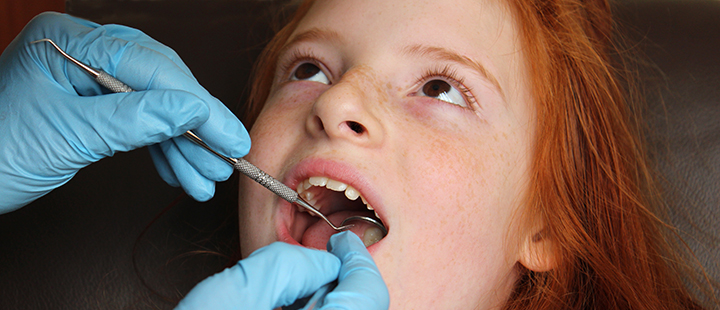Cavities, also referred to as tooth decay, or dental caries, is the breakdown of the hard tissues of the tooth. This breakdown, or demineralization, is caused by acids produced by the bacteria found in plaque. This damage can lead to the formation of pits or holes (cavities) and will eventually require professional treatment. Your dentist can remove the decay and fill the cavity. Without treatment, tooth decay can destroy your tooth.
Step 1

Step 2

Step 3

Step 4

Stages of Tooth Decay
- Stage 1: A white or brown spot on the tooth’s surface may be a sign of early decay. Brushing with a fluoride toothpaste and flossing may prevent it from becoming a cavity.
- Stage 2: The decay has gone through the tooth’s hard enamel surface layer.
- Stage 3: Now that the cavity has gone through the enamel to the softer layer of the tooth, it will get destroy the tooth structure more quickly as the layers of tooth beneath the enamel are not as hard.
- Stage 4: If the cavity is not filled, it can cause bigger problems deeper in the tooth. This is why it’s important to see your dental team regularly.
If you do have tooth decay, your dental team may talk to you about fillings, fluoride, or other treatment choices.
Follow these tips to help prevent cavities:
- *Avoid sugary foods and drinks that feed the bacteria in your mouth
- * Use toothpaste and mouthwash that contain fluoride – fluoride strengthens tooth enamel to help prevent cavities.
- * Brush thoroughly every day to remove plaque. Floss daily to remove plaque between teeth.
- * Talk with your dentist about any medical conditions or medications you are taking – both can cause reduced saliva flow that can lead to tooth decay because the teeth are not being naturally cleansed.
- * Other factors can contribute to problems with tooth decay; alcoholism, tobacco use, eating disorders – have a discussion with your dentist or physician if you have any concerns.




